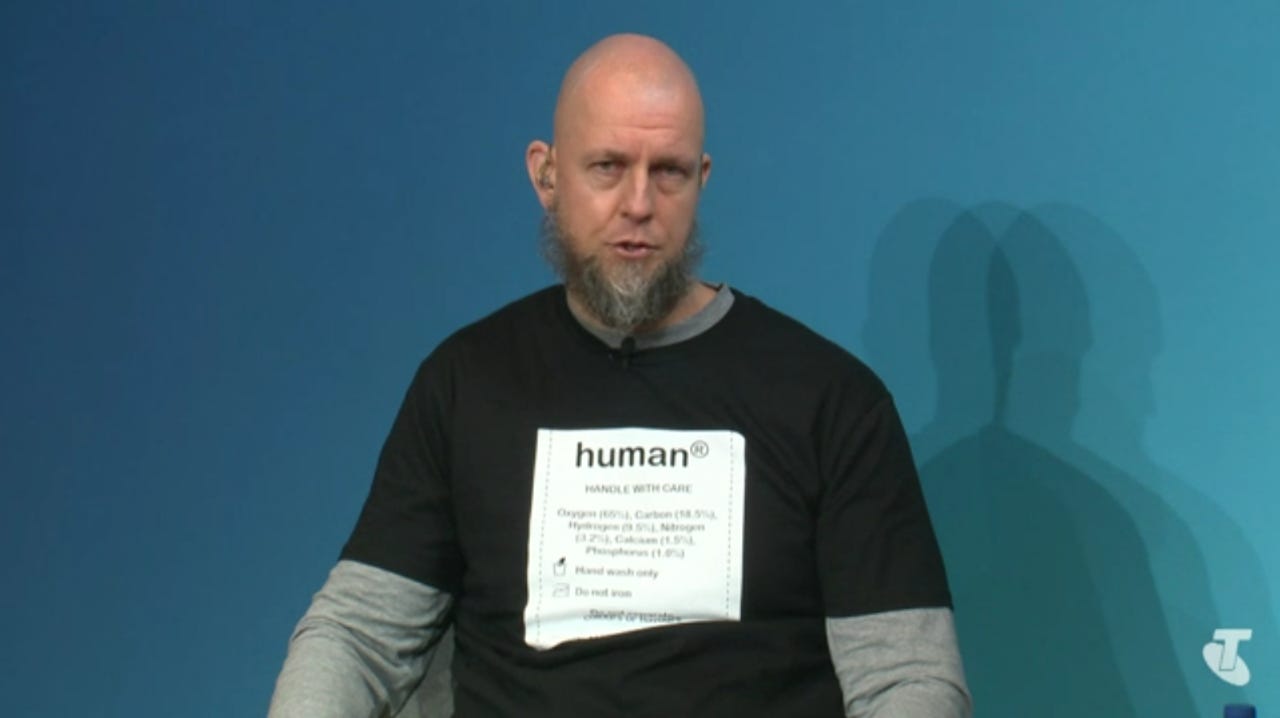
































Telstra's Ben Burge
Image: TelstraTelstra will be taking small steps to ensure its foundation is correct before it opens its doors to the wider public at the end of fiscal year 2022, the telco's energy head Ben Burge said on Tuesday.
"When things go wrong in energy, the outcomes can be horrendous, especially for those customers who find themselves at the mercy of ill health, domestic violence, or some other bad hand dealt out in life's random walk. This means that our early growth will be measured rather than explosive," Burge said at the second instalment of the company's investor day for 2021.
"We have to get the basics right for those in the market who are most at risk before we earn the right to scale up in a way that might reshape the way the markets work."
Having gained authorisation to operate in New South Wales, Queensland, and South Australia, Telstra will begin signing up some of its employees as customers on a test basis, before the public can sign up by the end of this fiscal year.
The telco is no stranger to electricity, nor the grid, with Burge saying the telco has been using the standby power assets, including batteries, used in its telecommunication infrastructure to stabilise the grid and address market shortages.
During May, Callide Power Station suffered a fire in its turbine hall that led to outages across Queensland. Burge said Telstra was able to keep the lights on for 50,000 families during that event.
"This gives you an indication of how we can harness the natural hedges we enjoy from our physical assets and long term contracts to manage our exposures to a growing energy customer book," he said.
"The physical assets we have already activated would be enough to cover nearly 50,000 customers. In the next few years we expect to grow that coverage to over 200,000 customers."
One advantage that Telstra has over its potential competitors in the space is that it needs this infrastructure to support its telco assets, and the ability to serve power to the grid is a welcome byproduct.
Telstra will not be involved in electricity generation explicitly, but has already invested in solar farms and wind farms.
Customers will be able to manage plans within the flagship My Telstra app that already controls fixed and mobile connectivity, with electricity plans to be 100% carbon neutral at no extra cost.
Because it is typically involved in the process of many customers moving house, the telco believes it has the perfect opening to get customers to consider its energy offering when it launches, which trials of selling third-party products from its contact centre have shown and at a lower cost than other tier two providers.
"A few years ago, I launched and ran an energy retailer [called Powershop], I can tell you, I would have crawled over broken glass to access the marketing assets that Telstra has at its disposal," Burge said.
"I'm still coming to grips with the fact that we have a relationship with five million households, and nearly one million small businesses. The idea of potentially being able to communicate with millions of eligible Telstra Plus members and active digital users is simply mindblowing."
Burge said that having been on the energy-selling side of the fence previously, he would rather be a telco selling energy, than an energy provider trying to sell telco services.
"One fundamental point to make is on differentiation. So if I tried to convince customers that Telstra energy's electrons are somehow better quality than anyone else. I'd go to jail," he said.
"The electrons are the electrons, the base commodity, there's no differentiation in it. So it comes down to customer experience on signup, simplicity, customer service. That is in stark contrast to telco.
"In telco, particularly in the mobile experience, you are literally purchasing a differentiated experience. And so for an energy company to ponder, 'Am I going to go seriously take seriously an entry into telco, particularly mobile?', you've got to enter that into that battle and be prepared to compete. Otherwise, you're picking up a reseller position, thinner margin, less scope of differentiation."
Telstra has its smart modem in around 2.3 million households, and Burge added there is future potential for it to become a "secure control plain" that would first be used to monitor energy consumption, but could eventually be used to control household appliances.
With Telstra having an internal power bill equivalent to 300,000 homes, Burge said adding more energy customers would give the company the ability to look at expanded options to get to its 100% renewable goal.
"Pushing into retail is therefore a natural extension of what we've been doing for several years and will augment our efforts to accelerate the decarbonisation of the Australian grid," he said.
"We would love the opportunity to save you a ton of cash and assuage any guilt that you might have about the role that your current retailer might play in polluting the Earth."
Earlier, the telco said it does not see its 5G fixed wireless service as an alternative to NBN services.
 Tags quentes :
Home & Escritório
Rede
Tags quentes :
Home & Escritório
Rede